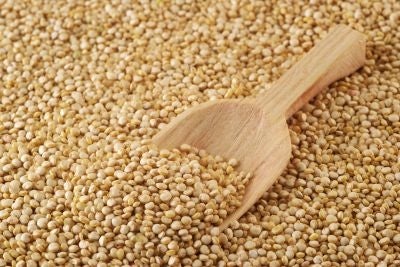Your support helps us to tell the story
From reproductive rights to climate change to Big Tech, The Independent is on the ground when the story is developing. Whether it's investigating the financials of Elon Musk's pro-Trump PAC or producing our latest documentary, 'The A Word', which shines a light on the American women fighting for reproductive rights, we know how important it is to parse out the facts from the messaging.
At such a critical moment in US history, we need reporters on the ground. Your donation allows us to keep sending journalists to speak to both sides of the story.
The Independent is trusted by Americans across the entire political spectrum. And unlike many other quality news outlets, we choose not to lock Americans out of our reporting and analysis with paywalls. We believe quality journalism should be available to everyone, paid for by those who can afford it.
Your support makes all the difference.According to new research loading up on fiber can make a big impact on your heart health throughout your lifetime.
A new study reveals that adults between 20 and 50 years old who bulked up on fiber had a "significantly lower estimated lifetime risk" for heart disease. While it's been well researched that high-fiber diets can lower cholesterol and improve hypertension, this study is the first of its kind to examine how fiber can affect a person's lifetime risk for heart disease.
How much fiber do you need? Researchers said that the 25-30 grams of dietary fiber recommended by many governmental agencies (US, UK, Germany, Netherlands) is what to aim for. But remember, that's about six times the amount of fiber in an average serving of oatmeal. Also, be sure to get your fiber from whole foods, not processed fiber bars, supplements, or drinks, according to the researchers.
"A processed food may be high in fiber, but it also tends to be pretty high in sodium and likely higher in calories than an apple, for example, which provides the same amount of fiber," said US cardiologist Donald M. Lloyd-Jones, corresponding author of the study.
Load up on fruits, vegetables, whole grains, and legumes for natural sources of fiber. Red beans are a great source - they are packed with antioxidants, protein, folate, and fiber, including resistant starch, which is a hot new trend in fiber research according to health expert Maureen Callahan, a contributing editor of US-based magazine Health. The benefits of resistant starch claim to include helping the body to burn fat, keeping you feeling full and satisfied, and even reducing cancer risks. Other good choices include whole grain pasta, artichokes, yams, and quinoa.
Need another reason to eat fiber? Dutch researchers in a study involving almost 90,000 Europeans discovered that a high-fiber diet, namely cereal fiber, correlated to a reduced body weight and a trimmer waistline.
The new study was presented March 23 at the American Heart Association's Nutrition, Physical Activity and Metabolism/Cardiovascular Disease Epidemiology and Prevention Scientific Sessions 2011 in Atlanta, Georgia.
Read more about the resistant starch trend: http://www.resistantstarch.com/ResistantStarch/
Read more about the study: http://www.northwestern.edu/newscenter/stories/2011/03/fiber-heart-disease.html
Watch: http://www.howcast.com/videos/172521-How-To-Follow-a-HeartHealthy-Diet

Join our commenting forum
Join thought-provoking conversations, follow other Independent readers and see their replies
Comments